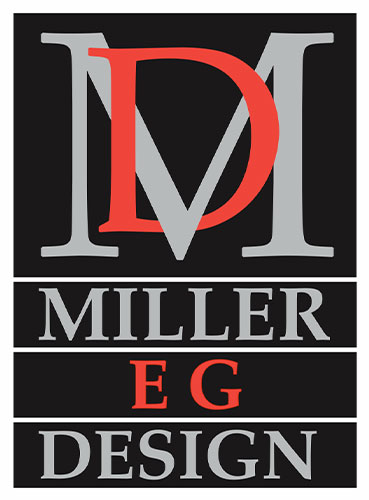In a world increasingly focused on sustainability and environmental consciousness, businesses and institutions are looking for innovative ways to reduce their carbon footprint. One crucial aspect of this shift is incorporating eco-friendly practices into every stage of operation, including design and signage. At Miller EG Design, located at 315 Northpoint Pkwy SE Suite F, Acworth, GA 30102, we specialize in sustainable wayfinding solutions that not only guide and inform but also embody responsible environmental stewardship.
The Importance of Sustainable Wayfinding
Wayfinding refers to the tools and systems that help people navigate spaces—be it hospitals, office buildings, educational campuses, or public venues. Traditional wayfinding solutions often rely on materials and processes that can be harmful to the environment, including plastics, chemically treated metals, and non-recyclable composites. By rethinking the materials we use and the practices we implement, Miller EG Design promotes a cleaner, greener way of developing these essential tools.
Embracing sustainability in wayfinding goes beyond reducing waste. It helps our clients convey their commitment to eco-friendly practices and enhances their brand’s reputation. This approach resonates with an audience increasingly aware of the ecological impact of the spaces they inhabit.
Eco-Friendly Materials for Wayfinding
At Miller EG Design, we focus on using materials that are not only functional and aesthetically pleasing but also environmentally responsible. Here’s how we incorporate sustainability into our wayfinding solutions:
- Recycled and Reclaimed Materials: We source materials that are recycled or reclaimed, such as post-consumer plastics and reclaimed wood. These options help reduce the need for virgin materials, thereby cutting down on deforestation and lowering the carbon footprint associated with material production. For example, signage made from reclaimed wood not only looks unique but also conveys a warm, natural aesthetic.
- Bamboo and Rapidly Renewable Resources: Bamboo is an excellent material for wayfinding due to its strength, versatility, and renewability. Unlike hardwoods that take decades to mature, bamboo grows rapidly and regenerates without needing replanting. Incorporating bamboo in wayfinding elements allows for a sustainable and long-lasting solution.
- Biodegradable Composites: We also explore innovative materials like biodegradable composites made from plant fibers and natural resins. These materials break down more easily in the environment compared to traditional plastics, reducing waste buildup in landfills.
- Eco-Friendly Inks and Coatings: Traditional inks and coatings used in printing can contain volatile organic compounds (VOCs) that release harmful chemicals into the air. We opt for soy-based or water-based inks, which are non-toxic and derived from renewable resources. Additionally, UV-cured coatings provide durability without releasing pollutants during the curing process.
Sustainable Design Practices
Our approach at Miller EG Design goes beyond selecting the right materials; it’s also about following eco-friendly design practices that minimize waste and energy use:
- Efficient Design Planning: We aim to use every inch of material to minimize waste. Our design team strategically plans signage layouts that maximize material usage, ensuring that excess scraps are kept to a minimum.
- Modular Signage Systems: By designing modular wayfinding systems, we make it easy to replace or update sections without needing to replace entire signs. This reduces resource consumption and saves on future waste.
- Energy-Conscious Fabrication Processes: We utilize energy-efficient machinery and sustainable practices during the manufacturing phase. This includes investing in equipment that uses less power and adopting techniques that reduce the overall carbon output of production.
- Lifecycle Planning: Our team designs wayfinding solutions with longevity in mind, focusing on durable materials and timeless design concepts that won’t become obsolete. When signs eventually reach the end of their usable life, they can be repurposed or recycled.
Benefits of Choosing Sustainable Wayfinding
Choosing sustainable wayfinding solutions provides a host of benefits:
- Environmental Impact: The primary benefit is the reduced environmental footprint. From production to disposal, eco-friendly wayfinding practices are designed to have minimal impact on the planet.
- Enhanced Brand Image: More consumers and businesses are aligning themselves with brands that prioritize sustainability. By integrating eco-friendly wayfinding systems, your brand signals its commitment to responsible practices.
- Regulatory Compliance: Sustainable practices can help you meet or exceed environmental regulations, potentially avoiding fines or complications related to non-compliance.
- Cost Savings: Although initial investment in eco-friendly materials may sometimes be higher, long-term savings can be realized through the durability and energy efficiency of sustainable solutions.
Our Commitment at Miller EG Design
At Miller EG Design, our mission is to guide our clients toward better, more eco-conscious wayfinding systems. We combine creative expertise with sustainable practices to ensure that each project not only meets functional and aesthetic needs but also aligns with the values of environmental responsibility. Our team works closely with clients to customize solutions that reflect their commitment to sustainability, ensuring a positive impact on both users and the environment.
Ready to transform your space with sustainable wayfinding solutions? Contact Miller EG Design today at (404) 947-6448 or visit us at 315 Northpoint Pkwy SE Suite F, Acworth, GA 30102. Let’s create pathways that lead not only to destinations but to a greener, more responsible future.

